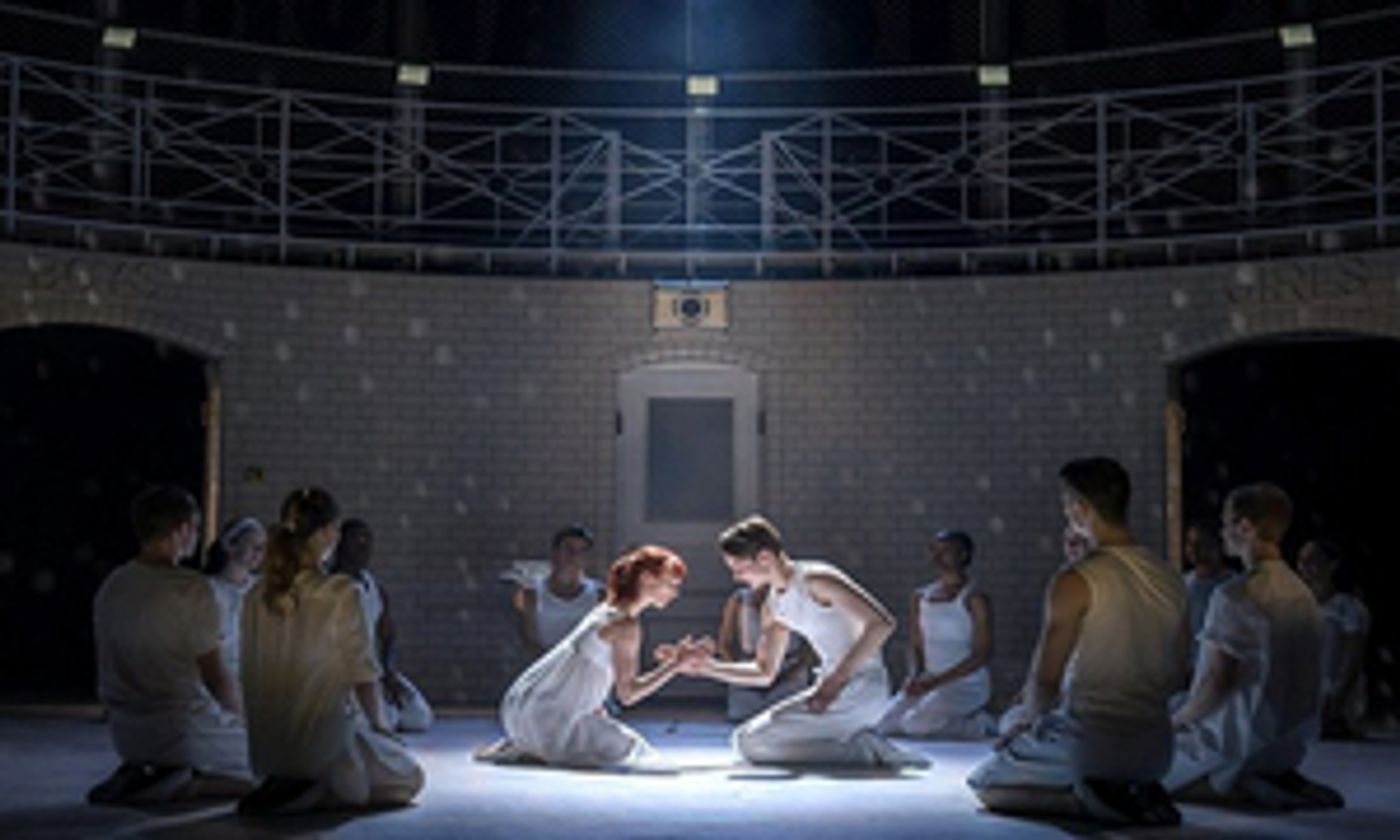Review: MATTHEW BOURNE'S ROMEO AND JULIET, Sadler's Wells

![]() Friday's press night performance of Matthew Bourne's Romeo and Juliet was one of the most breathtaking nights at the theatre I've seen in a long time - and that's without including a live show stop.
Friday's press night performance of Matthew Bourne's Romeo and Juliet was one of the most breathtaking nights at the theatre I've seen in a long time - and that's without including a live show stop.
As the house lights went up, Bourne himself took to the stage to announce there would be an unplanned pause, only 20 minutes into the performance: an unfortunately injured Reece Causton was unable to perform as Mercutio. Curiously, the scene prior to the stop had been danced as a duo instead of a trio. "Apologies if that looked a bit scrappy," said Bourne. I wish, with my critical eye, I could have agreed with him, but Jackson Fisch as Balthazar and Harrison Dowzell as Benvolio spontaneously adapted the choreography so convincingly I hadn't even noticed.
Happily, no more than 15 minutes later we got to see the scene as it should be viewed, with Ben Brown hot-footing it to the theatre to save the day. Not only was it a miraculous recovery, but the tour de force that followed from the New Adventures company meant it was hard to believe the interruption had ever happened.
At a running time of two hours including an interval, this is one of Bourne's leanest, most impressive shows. Its flow, dramatic intensity and momentum are never lost; there's no breather for the audience and no fluff or filler.
The fast-moving choreography, full of character and nuance, sees thought behind every step and look. Lez Brotherston's flawless set is similarly clinical, left as blank as the ensemble's stark white outfits. There is nothing decorative within the borstal-like Verona Institute; everything serves a functional purpose, from the subtly placed ledges that allow the set to be climbed between the stage and balcony, to the stark white tiled walls that denote incarceration.
Terry Davies' arrangement of Prokofiev's powerful score is used to great effect. The bold choice to open with a charged "Dance of the Knights" makes a confident statement as the ensemble, wearing white costumes and blank expressions, dance in ordered formations to give off a feeling of repressed teenage hormones.
Romeo (a dorky and later sentimental Paris Fitzpatrick), awkward offspring of a political power couple, is seen dropped off at the institute. He is quickly befriended by the aforementioned trio before a reimagined ball scene which sees the girls wear drab party frocks and the boys ill-fitting jackets and trousers.
From here, prepare to get swept away in some dreamy storytelling. Fitzpatrick and his Juliet, Cordelia Brathwaite, are a compelling partnership, hungry in their desire to be together. The famous balcony scene is left pleasingly untouched as Braithwaite floats through the air on the back of her Romeo, the pair dancing in their own bubble of euphoria before things turn violent.
Dan Wright's unstable prison guard Tybalt has a commanding stage presence. Overly authoritative and unchallenged, he reigns with fear and savage physicality.
It wouldn't be a Bourne show without a little comic relief, delivered here by an ebullient Daisy May Kemp as a jolly prison reverend who adds some much-needed joviality to the party scene with her enthusiastic organ playing. (She also impressively doubles as Romeo's apathetic mother.)
Bourne's Romeo and Juliet makes for an entirely satisfying and complete night of entertainment. It's unfair to throw cliches at something so good, but your jaw will drop, and there really are moments so stunning, whether for their drama or beauty, that you might just forget to breathe.
Romeo and Juliet runs at Sadler's Wells until 31 August
Image credit: Johan Persson
Reader Reviews
Videos

